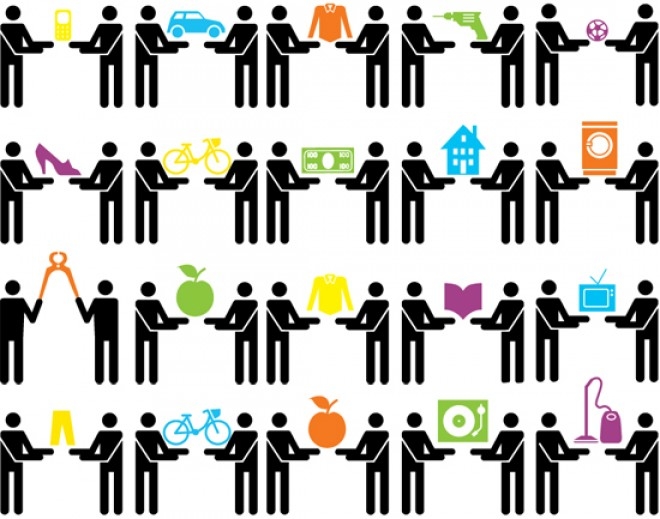The availability of internet has started a bit of a revolution when it comes to innovation. What we take for granted today might have not existed 20 or so years ago – prime example being anything we do on the internet. It truly is the greatest innovation platform invented to date.
One of the biggest beneficiaries of this internet platform are the service industry providers, i.e. businesses based around providing services to the general public. Want a car by your doorstep in less than 5 minutes? Uber has you covered. Need an affordable place to stay during your summer trip? Rent an apartment through Airbnb! Need a bike to get around? You can find it in minutes. These mentioned services can be classified as a part of the emerging so-called sharing economy. You don’t own a product per-se, but you can find one available when you need it, where you need it. The emergence of sharing economy can be attributed to the changing order of ownership in the 21st century, or even overpopulation – the same amount of resources are being shared by an ever-increasing number of people.
The sharing economy is booming in East Asia, specifically in the overpopulated metropoles such as Seoul, South Korea. Seoul has a population density 10 times the one of Rotterdam The Hague Metropolitan Area, just to give some context. Considering that the population density in Europe is increasing, it’s quite important to pay attention how others have been, and still are, tackling the said issue. Their approach is unique in a way, and very supportive of the shift in the economy. From consulting and subsidizing startups and giving grants, they take a very traditional approach of the development process, but they also use a different approach – appealing to people’s feelings. Something we’re less used to here in Europe, but this appeal to the emotions of the population has always been a part of the East Asian culture, with splendid outcomes! The society is sticking together, creating new opportunities by sharing unused resources – sharing the economy. They’re trying to keep the community integrated during the “rapid urbanization” [1], whilst in Europe we are much better acquainted with small steps in creating new ideas – so-called incremental innovation. The main issue these radical innovations face in Europe is the excessive use of policies to regulate the economy, which are becoming outdated at an increasing pace, creating a bottleneck which, for example, Uber is facing at the moment (no regulations on this sort of business exist yet [2]).
How much better off would the whole economy be, if only we embraced the current shifts in the economy and society like the fellow Earthlings of Eastern Asia do? The innovation gap is right there for us to grab it, which is blocked only the existing policies that the Europeans aren’t changing quickly enough. Europe is a far way off from the current situation in Seoul, so there’s still time to prepare for the overpopulation that is bound to happen in a country like the Netherlands, where there’s no more room for city expansion. Signs of this change are already appearing, like the current housing shortage in Delft. [3]
So, the outtake from the above is that embracing the current societal, as well as technological, trends that form the sharing economy as a good change for all the stakeholders – the general public, business owners, as well as the environment! [4]
Sources:
[1] http://www.fastcoexist.com/1682623/why-the-sharing-economy-is-taking-off-in-seoul
[3] http://delta.tudelft.nl/article/international-students-burdened-by-delft-housing-shortage/29171
